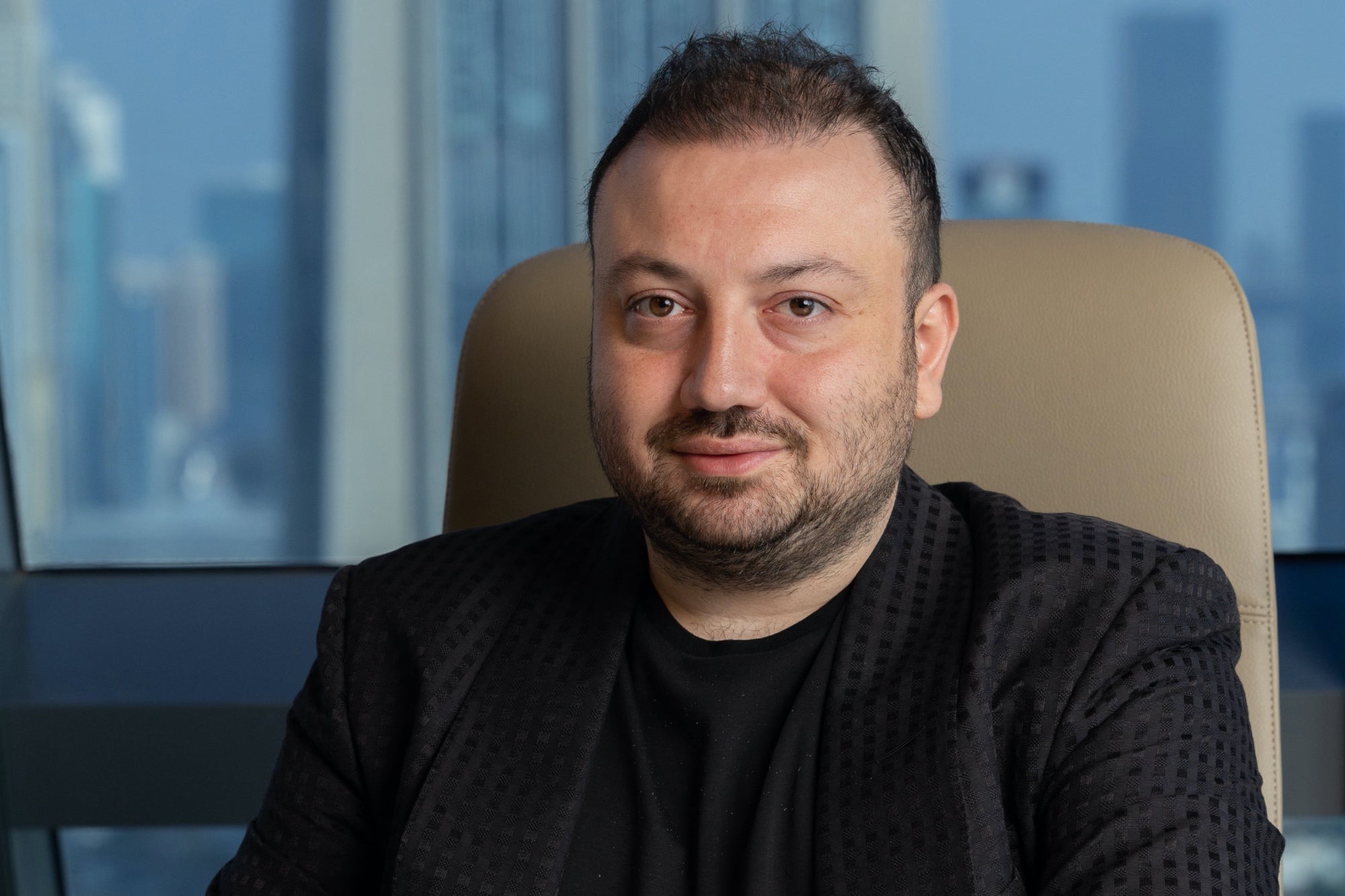Follow The Leader: Tarek El Bolbol, Co-Founder And CEO, Booklava "It's key you have a top team focused on building consumercentric products that solve real problems, and are able to iterate fast and pivot quickly if needed."
Opinions expressed by Entrepreneur contributors are their own.
You're reading Entrepreneur Middle East, an international franchise of Entrepreneur Media.

Audiobooks, a niche but growing aspect of book publishing is significantly rising. According to the 2018 revenue report of Association of American Publishers on consumer book publishers, there's been an increase in audiobook sales, jumping by 37.1%, an additional US$127.1 million since 2017. And filling in the appetite of audiobooks in the MENA world is Booklava, an online Arabic audiobook publishing platform for spoken-audio, which ranges from audiobooks, audio drama, podcasts, audio magazines and more in longform and short titles format.
Founded in 2016 by co-founder and CEO Tarek El Bolbol (and an undisclosed co-founder) at the Dubai-based in5 incubator hub, Booklava launched as a subscription-based platform with the mission to "offer top quality content in audio for people to consume on-the-go with the ultimate objective of helping solve the problem of reading, or lack thereof, in the Arab world."
Currently, the startup has over 50,000 users in its platform, and is focusing on building traction. The platform has also generated revenue through subscriptions and white labeling solutions, and gained a few recognitions too: in 2017, the startup was chosen one of the top 10 most promising startups founded by Arab entrepreneurs from Harvard University, and it also recently won the Audiobook Publisher of the Year title at the London Book Fair International Excellence Awards 2019.
The startup is also venturing to new segments- El Bolbol says that they're building a distinct "spoken-audio product" for the English-speaking market to bring new headlines, news articles, premium magazines, book summaries and podcasts, all in bite-sized short form audio under one platform. The new product, which will be called Booklava Executive, is set to be launched at the end of the year, with an aim to garner 100,000 paid subscribers by the end of year 2021.
Related: Jordanian Startup Jamalon Helps Arab Book Lovers Find Their Favorite Read Online

Before taking a leap towards entrepreneurship, El Bolbol worked with a multinational FMCG with deployments in Switzerland, Egypt, Lebanon, Jordan, and Kuwait, through which he had the opportunity to cover 50 global markets in several functions. As someone who's had his fair share of both the corporate world and being an entrepreneur, when asked on essential aspects to leading an enterprise, El Bolbol emphasizes on two factors: the significance of hiring top talent, and the importance of remaining laser focused on what you're building, and who're building it for. He also asserts that customer centricity can never be overstated.
"In a fast-moving business environment, it's key you have a top team focused on building consumer-centric products that solve real problems, and are able to iterate fast and pivot quickly if needed." Of course, as most SMEs in the region can attest to, hiring talent is a common challenge, and El Bolbol remarks that as a startup, it's your ability to offer competitive packages as you compete against multinationals. And especially as enterprises build teams on a tight budget, El Bolbol says this raises the gravity of first creating and fostering a collaborative and purpose-driven work environment, and making your executive team part of your company by leveraging an employee stock ownership plan (ESOP).
He also advises "treps to invest in the best team they can find from the early days of their startup: "Don't wait to close a Series B funding round before you can afford high salaries, otherwise you'll never get to Series A! If you can't afford them from day one, are not willing to give a generous ESOP, and cannot sell anyone on your vision, you might be setting yourself up for failure." As El Bolbol emphasized the impact of optimizing a culture of well-being for your team, especially your startup's founding team, it's interesting to look at the CEO's personal leadership approach too.
For El Bolbol, it's all about embodying kindness, empathy, collaboration, and purpose. "People want to feel part of something impactful and bigger than themselves, and want to be respected in the process," he says. To illustrate his point, he uses a famous interaction between former US President John F. Kennedy and a janitor at NASA who, when asked what he did, replied: "Mr. President, I'm helping put a man on the moon." This, El Bolbol, says shows that regardless of someone's role in a company, they can all have a role to play in the bigger picture.
As a startup catering to the audio content business, a challenge was getting shortform content narrated, edited, mastered and published live quickly, involving various people and teams, with the slightest disruption of flow leading to the delay of content going live. The team realized that if the narrator or voice actor/actress had the skills to edit and master their own piece of work to get it ready to go live, the process would be more streamlined, so they trained their voice actors to do the extra process- a great advantage as it enhance efficacity and turnaround time, while also enhance their skills.
This is when El Bolbol advises that when it comes to entrepreneurship, it's essential to be really scrappy, start small and iterate fast, he looks back at their previous main mistake of launching Booklava was "building too much too early on and with not much validation. Although it's important to trust your gut feeling, you also need to carefully balance assumptions versus realities."
As for the MENA ecosystem, El Bolbol notes that though it may seem like a mammoth region, in reality, it's fragmented, yet more interesting, with each country having its own business dynamics, regulations, tech infrastructures, digital economies, and more. "Many entrepreneurs get stuck trying to access specific markets in our region, while forgoing the opportunity of exploring other international markets, which could prove easier and more lucrative to expand to."
That's not to say there's been definite advancement in the ease of doing business in the region, El Bolbol notes, as the UAE offers business-friendly environments for those trying to set up businesses, while Saudi Arabia is opening up fast too. Having said that, he advises MENA entrepreneurs to be wary of applying practices from books and stories from Silicon Valley-based enterprises. "Each region is different and has its own challenges, limitations, and opportunities. For us, I'd say it is mainly access to markets, quality of talent, and "patient' capital. Furthermore, lead times in this region can be longer (whether it is seeking regulatory approval or convincing a partner to work with you), so make sure to budget for that financially, while setting realistic expectations with your stakeholders– be careful not to over promise!"
At the same time, El Bolbol believes in dreaming big, and there are examples from around the world that testify to the heights this forward-thinking approach can take an enterprise. "Amazon was once a startup with only two employees, and today has around 700,000 employees- so, just imagine its economic contribution today to its home country, the US," he notes. "So, some obscure unknown startup in MENA today can one day become an Amazon or Google for the world."
Related: Follow The Leader: Samer Toukan, CEO, FundedByMe MENA













